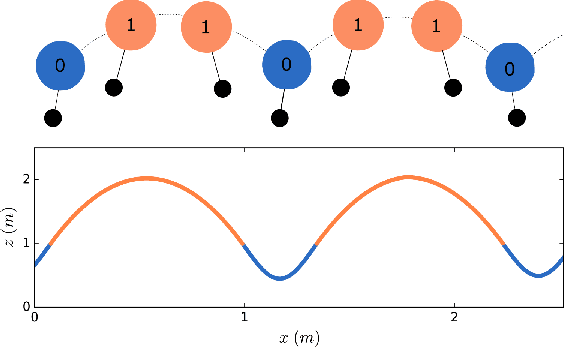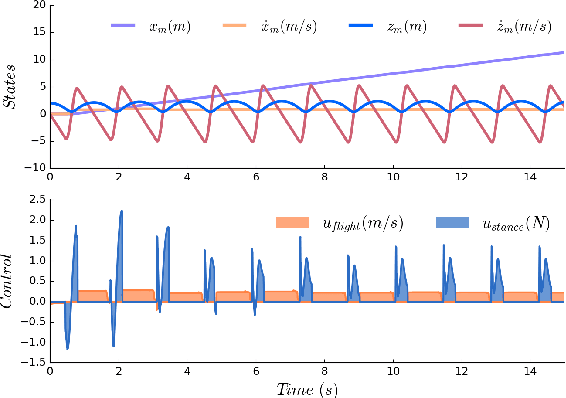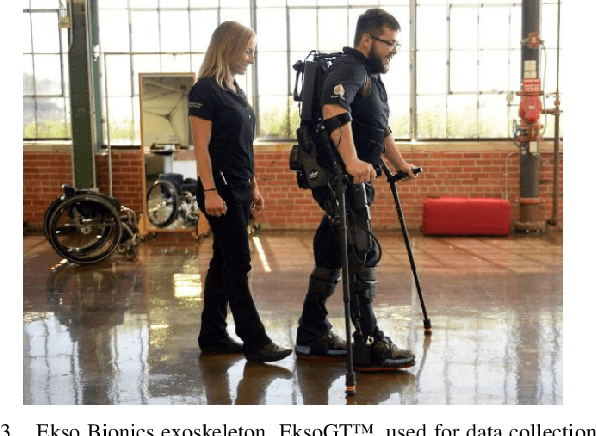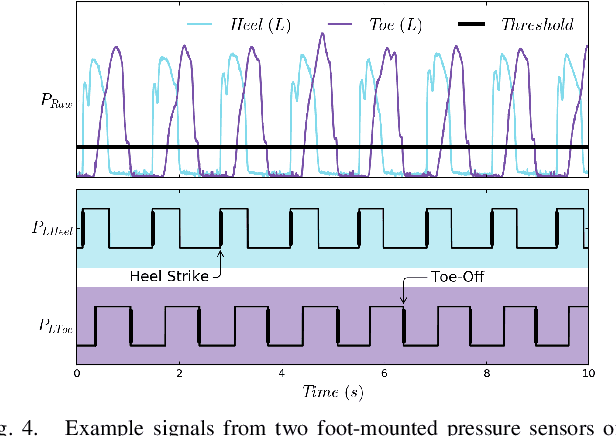Adam Zoss
Data-Driven Gait Segmentation for Walking Assistance in a Lower-Limb Assistive Device
Feb 28, 2019



Abstract:Hybrid systems, such as bipedal walkers, are challenging to control because of discontinuities in their nonlinear dynamics. Little can be predicted about the systems' evolution without modeling the guard conditions that govern transitions between hybrid modes, so even systems with reliable state sensing can be difficult to control. We propose an algorithm that allows for determining the hybrid mode of a system in real-time using data-driven analysis. The algorithm is used with data-driven dynamics identification to enable model predictive control based entirely on data. Two examples---a simulated hopper and experimental data from a bipedal walker---are used. In the context of the first example, we are able to closely approximate the dynamics of a hybrid SLIP model and then successfully use them for control in simulation. In the second example, we demonstrate gait partitioning of human walking data, accurately differentiating between stance and swing, as well as selected subphases of swing. We identify contact events, such as heel strike and toe-off, without a contact sensor using only kinematics data from the knee and hip joints, which could be particularly useful in providing online assistance during walking. Our algorithm does not assume a predefined gait structure or gait phase transitions, lending itself to segmentation of both healthy and pathological gaits. With this flexibility, impairment-specific rehabilitation strategies or assistance could be designed.
* 7 pages
 Add to Chrome
Add to Chrome Add to Firefox
Add to Firefox Add to Edge
Add to Edge